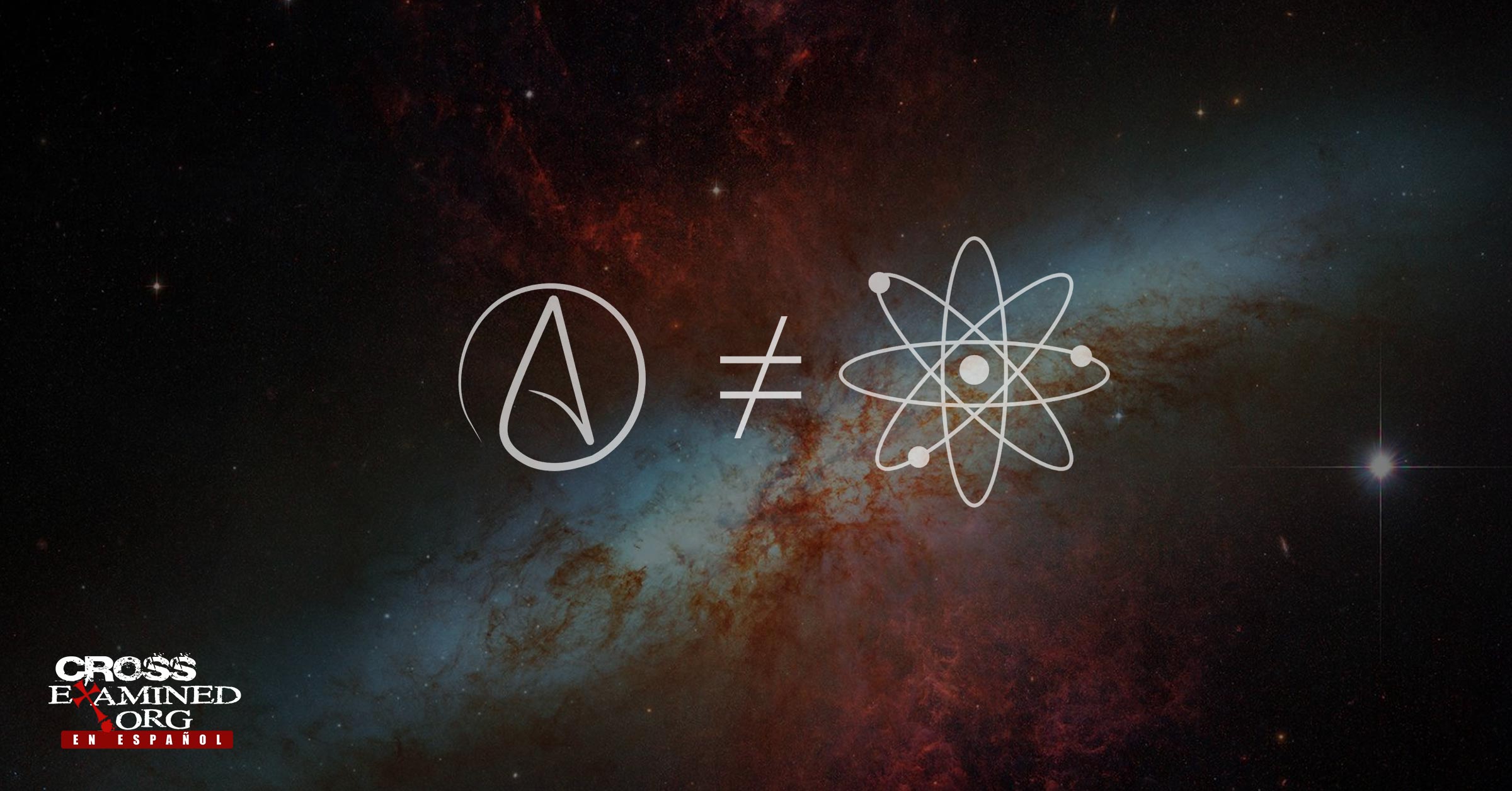By Erik Manning
A few weeks ago, CNN Tonight host Don Lemon said: “But here’s the thing, Jesus Christ, if that’s who you believe in Jesus Christ, admittedly was not perfect when he was here on the Earth. So why are we deifying the Founders?”
As you can imagine, this caused quite a stir over social media and on the blogs, since the Bible clearly teaches Christ’s sinless perfection. While a few right-wing Christian leaders went a little overboard in their denouncements of Lemon, “The Friendly Atheist” took it as an opportunity to take some jabs at Jesus.
Hemant Mehta, the author of the blog, writes:
“Let’s talk about what Jesus did.
* Jesus once got so angry he flipped over tables and benches.
* Jesus cursed a fig tree because it didn’t have anything to eat — because figs weren’t in season — and then the tree died. Jesus killed a tree because He was hangry.
* Jesus admitted to speaking in parables that were difficult for people to understand… and then got mad when people didn’t understand them.
* Jesus got snippy when people asked Him why He didn’t wash His hands.
* Jesus’ actions led to the deaths of a whole bunch of pigs, angering an entire town.
So… either we have to acknowledge Jesus could be a jerk at times despite whatever other redeeming qualities we want to assign Him. Or, like the conservative Christians are doing, we can pretend Jesus was perfect because our faith requires it… even when the Bible itself has plenty of evidence to the contrary.”
So according to Mehta, Jesus was a jerk. But is he really being fair to the texts?
Jesus the table flipper?
Was Jesus just throwing an unjustified temper tantrum when he cleansed the Temple? To answer that, we need to give a little background. The temple market was established after the Babylonian captivity. JB Lightfoot says “There was always a constant market in the temple in that place, which was called ‘the shops;’ where, every day, was sold wine, salt, oil, and other requisites to sacrifices; as also oxen and sheep in the spacious Court of the Gentiles”
Josephus estimated there would be up to 3 million Jews traveling to Jerusalem for the Passover. Seeing their devotion, the money-changers saw an opportunity to get rich. They made a business of accommodating those who didn’t have the half-shekel temple tax. (See Mt 17:24)
Everyone was expected to pay it, rich or poor, in the month of Adar. So it became necessary to change a shekel into two halves, or exchange foreign money for the Jewish half-shekel. (Money that bore the image of “Divine Caesar”, in some cases) These men made a nice profit by charging a percentage for the exchange. The animals were in the courts to be sold as a sacrifice since people traveling from afar weren’t usually able to bring them.
Jesus was upset that in the Court of the Gentiles, the place where non-Jews were designated to worship, people were being deprived of the opportunity to pray because of greedy, irreverent people and this happened under the watch Jerusalem’s religious leaders. Jesus quotes Isaiah 56:7 that the temple was to be a place of prayer for all nations.
This would be like trying to have worship in the middle of Walmart on a normal Black Friday. The Gentiles were pushed out of participation with the Passover. Matthew previously writes “I say to you that many will come from the east and the west, and will take their places at the feast with Abraham, Isaac, and Jacob in the kingdom of heaven.” (Mt. 8:11)
This event is called “The Cleansing of the Temple” for good reason. Jesus was purifying the temple from defilement. Nearly 200 years before, Judas Maccabeus cleansed the Temple after it was defiled by Antiochus Epiphanes. By cleaning out the Temple, Jesus is saying that the present Jewish leadership had defiled the Temple in the same way the Greeks did when the sacrificed a pig inside of it. Talk about an act of defiant protest! Shortly afterward, Jesus predicts the destruction of the Temple and the coming judgment upon the nation for their lack of response to Jesus’ Gospel. (Mark 13, Matthew 24)
So to sum up, you have noisy people who care nothing for God there to make an easy buck in the place where Gentiles were to worship, exploiting the poor in the process. Jesus taught that we can’t serve both God and money, and to him, this was both oppression, greed, and idolatry blatantly in his Father’s own house. Jesus said that this was to be a place of prayer, not a den of robbers. (Jeremiah 7:11) He was rightfully ticked off.
Not only that, but there’s not a hint that Jesus harmed any human or any animal. He flipped some tables. He fashioned a whip and gave it a good crack or two, but this would sort of like firing a gun in the air in a crowd. It would clear the people and the animals out in a hurry.
Was Jesus angry when he cursed the fig tree?
So what’s going on with the cursing of the fig tree? Jesus and his audience knew the writings of the prophets. They would’ve picked up on what Jesus was laying down. The Old Testament prophets used fig trees and vineyards to typify spiritual fruitfulness (or a lack thereof). Just see Isaiah 28:4, Jeremiah 24:1-10, Hosea 9:16-17, Micah 7:1. Let’s read Micah 7:1 to illustrate.
Woe is me! For I have become as when the summer fruit has been gathered, as when the grapes have been gleaned: there is no cluster to eat, no first-ripe fig that my soul desires.
Jesus cursing the fig tree was allegorical of judgment on fruitless Israel. How do we know that? Just look at the story. First, Jesus curses the fig tree. Then he cleanses the Temple, itself a symbolic judgment of the religious leaders. Then the disciples come back and notice the tree is withered. Shortly after that in Mark 12:1-12 and Matthew 21:33-46, Jesus tells the parable of the vineyard.
This parable tells of Israel’s unfaithfulness, their rejection of God’s prophets and ultimately God’s Son, and their impending judgment. Sandwiched between this is the cursing of the fig tree.
Now you might think this is me stretching things, but I’m not. Here are just a few examples of God’s prophets acting strangely to drive home a serious point:
- The prophet Ahijah ripped his clothes in twelve pieces, symbolizing that God was going to tear the kingdom from Solomon and give Jeroboam 10 of the 12 tribes of Israel. (1 Kings 11:29-31)
- Isaiah walked around basically naked for three years to warn the Egyptians and Cushites of impending doom against Assyria. (Isaiah 20:1-6)
- Ezekiel publicly cooked his food over cow poop (!), warning Jerusalem of impending judgment and famine. (Ezekiel 4:1-15)
- And who could forget God commanding Hosea to marry a prostitute as a symbol of Israel’s unfaithfulness? (Hosea 1:2)
Jesus cursing a fig tree is pretty tame in comparison. You might not like that God commanded his prophets to do weird stuff, but extraordinary incoming judgments call for unusual warnings to get people’s attention. God isn’t willing that any should perish and apparently is willing to go to great lengths to shake up the complacent so they would repent and be saved. Last I checked, a nation is more important than a single tree that lacks a nervous system.
So what about the pigs?
Was Jesus a pig-killer? If this incident with the demoniac and the pigs happened today, I can just imagine the headlines: NAZARETH PASTOR CAUSES DEATH OF 2000 PIGS, PETA LAUNCHES PROTEST. Does this put Jesus in the same category as Michael Vick?
For starters, the demons asked if Jesus was going to torment them now, meaning that their time hadn’t yet come to be judged, so he couldn’t make them just go away. (Mark 5:7) While Jesus is omnipotent, he chose not to fully operate that way as a man. For instance in Mark 6:1-6, we read that Jesus could do no mighty work in Nazareth due to their unbelief. So asking why Jesus didn’t just get rid of the demons is like saying, “why didn’t Jesus get rid of all evil people, evil spirits and every disease and affliction while he was here?”
Not only was Jesus not functioning in full-omnipotence, but he also wasn’t operating in omniscience, either. In the same chapter, he asks, “who touched me?” when the woman with the issue of blood is healed. (Mark 5:31) How can we be sure that Jesus knew what was going to happen to the pigs? That seems unclear.
There’s also nothing in these passages that show that Jesus drove the pigs into the sea and caused them to drown. Satan is the killer, not Jesus. (Jn 8:44) And it doesn’t make a lot of sense to say the demons caused the pigs to commit suicide since they just pleaded with Jesus to use them as their new hosts. One answer that Greg Boyd offers is that the demons just drove the pigs crazy, just the same way that parasites can drive animals crazy and cause them to hurt themselves.
I mean, these demons already drove two men into living naked in tombs, screaming and cutting themselves, and they couldn’t be restrained by chains. This is pretty freaky stuff. If Jesus felt like he had a better option, we can see from his character elsewhere in the Gospels that he would’ve taken it.
What stands out is that after seeing the destructive power of Satan and the delivering power of Jesus, the townspeople ask Jesus to leave. They could see the man now clothed and in his right mind, but they seem to care more about the pigs than the people!
In Matthew 10:31, Jesus says that human lives are worth more than many sparrows, and the same can be said for the pigs. While the man delivered begged to follow Jesus, the townspeople urged him to leave. They valued their unclean livestock more than Jesus and the man.
This shouldn’t need to be said but people are more important than pigs. You see this animals-first attitude in our day with groups like PETA, who’ve said tons of outrageously weird things.
This isn’t a case of Jesus acting carelessly. The man went from cutting himself to testifying throughout the region about what Jesus had done for him. This is an epic battle scene in the spiritual war that was being fought for the souls of people in the city. Don’t miss the deliverance for the pigs.
Was Jesus getting snippy over hand-washing?
There’s a lot more going on here than sanitary issues here, but Mehta conveniently leaves that out. Let’s look at the hand-washing passage in question:
“Then Pharisees and scribes came to Jesus from Jerusalem and said, “Why do your disciples break the tradition of the elders? For they do not wash their hands when they eat.” He answered them, “And why do you break the commandment of God for the sake of your tradition? For God commanded, ‘Honor your father and your mother,’ and, ‘Whoever reviles father or mother must surely die.’ But you say, ‘If anyone tells his father or his mother, “What you would have gained from me is given to God,” he need not honor his father.’ So for the sake of your tradition you have made void the word of God. You hypocrites!” (Matthew 15-1-7)
The concern has little to do with the spread of disease, it’s regarding Jewish laws about uncleanness. If you ate something wrong, you were ritually defiled. These hand-washing traditions of the Pharisees went beyond what the Law actually prescribed — as if accidentally eating something microscopically unclean is sinful.
The Pharisees were constantly criticizing Jesus for healing on the Sabbath. Jesus called them out for their hypocrisy of adding traditions on top of the word of God, which ended up negating the point of the law, which was loving their neighbor — including their mother and father. He saw people as more important than religious traditions.
I saved this example for last because I find some irony here. Mehta’s blog is chock full of posts dedicated to calling out religious hypocrisy. He should find that Jesus hated phony religious hypocrisy as an admirable trait, not as a character flaw.
Calling Jesus a jerk isn’t a real friendly thing to do, especially when you take a more “friendly” way to look at these texts. I’d argue that it’s probably more of a jerk move to dump a list of gripes against Jesus’ character with no explanation of the context. Contrary to Mehta, we don’t have “plenty of evidence” contrary to the traditional understanding of Jesus’ sinless perfection.
Recommended resources related to the topic:
Jesus, You and the Essentials of Christianity – Episode 14 Video DOWNLOAD by Frank Turek (DVD)
The New Testament: Too Embarrassing to Be False by Frank Turek (MP3) and (DVD)
How Can Jesus be the Only Way? (mp4 Download) by Frank Turek
Erik is a Reasonable Faith Chapter Director located in Cedar Rapids, Iowa. He’s a former freelance baseball writer and the co-owner of a vintage and handmade decor business with his wife, Dawn. He is passionate about the intersection of apologetics and evangelism.










